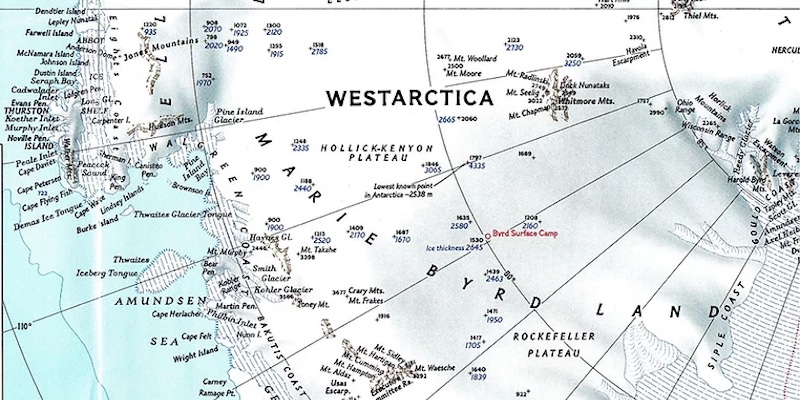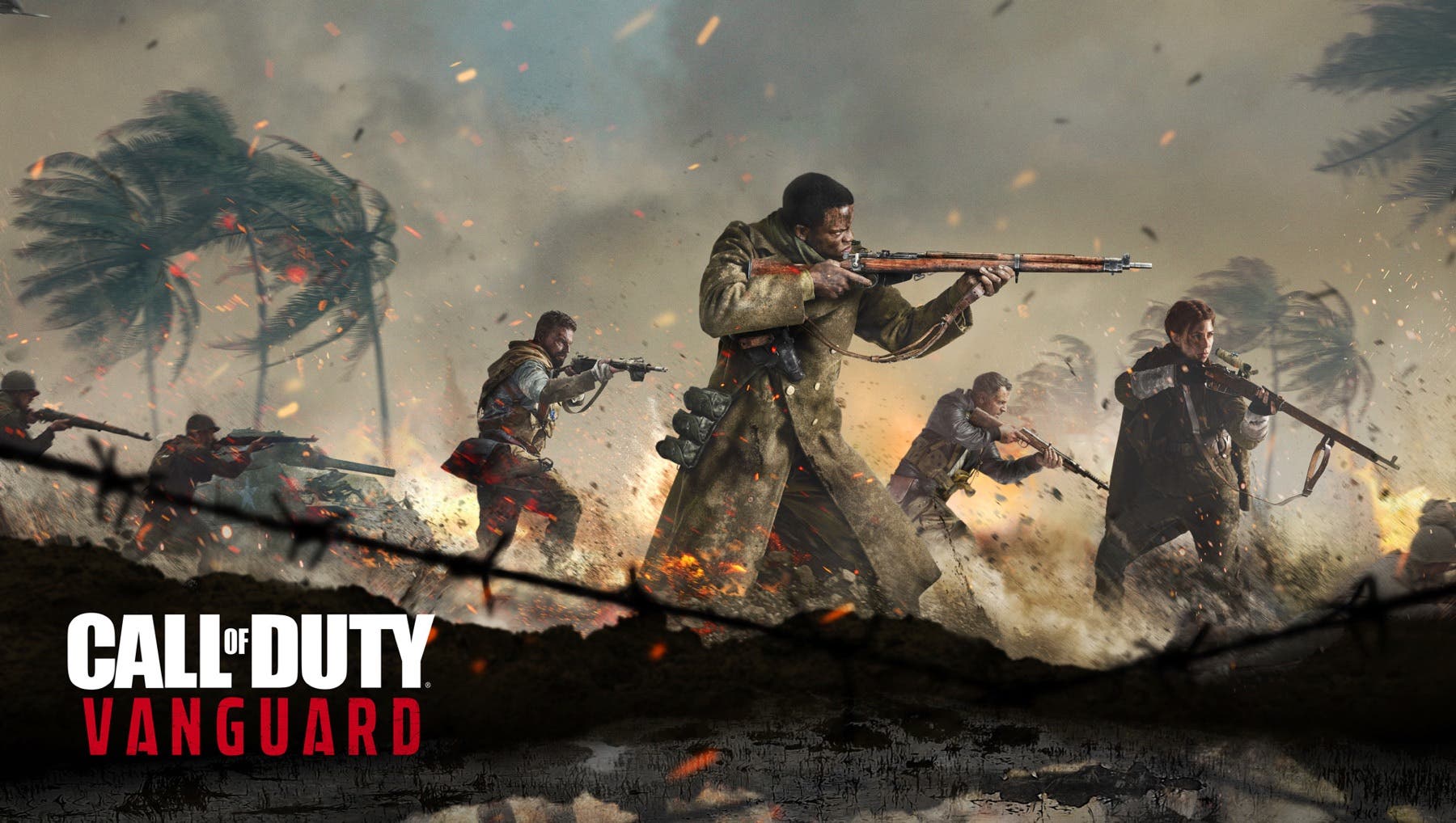On November 2, the Westarctica micronation celebrates the twenty years that have passed since the day when the then 21-year-old Travis McHenry decided to found it by claiming an uninhabited territory of over one and a half million square kilometers in West Antarctica. That is five times the surface of Italy, and therefore not so much micronation, even if it is defined and defined in this way as a sovereign project of a few people not recognized by other countries.
It is a place where McHenry has never been, however, and does not even intend to visit: the twentieth anniversary will in fact be celebrated by his home in the United States, from which he plans to wave the flag of his micronation, on which he has a cross. white on a blue background, with a white crown in the upper left quadrant.
In many ways, Westarctica resembles several other micronations among at least a hundred that are thought to be somehow active in the world at the moment. In the sense that it was founded mostly for fun and exists mostly on the internet, for example in the its small version of Wikipedia: where the history, the coat of arms, the literature, the characteristics, the general organization and a whole other series of events and curiosities are described in great detail. Often with joking tones: the voice dedicated to the flag says for example that the latter “has undergone many changes since the nation first declared itself sovereign territory”, and about the first flag (this) says that “it was generally considered an eyesore”, one of the “ugliest and most confused in vexillological history”.
In some of its features, Westarctica still continues to be a slightly goliardic micronation, as it was largely in its early years. For some time, however, it has been trying to be something different as well, like he told an article in the travel magazine Afar, according to which Westarctica “is now using its power for something other than dominating Antarctica.” In fact, for some years Westarctica has become a non-profit association, whose main current purpose is to raise awareness among people, not just its “citizens”, on issues related to climate change.
–
When he chose to found it twenty years ago, however, McHenry was not thinking about charity. Born in Benton, Pennsylvania, he attended a nearby university and became passionate about theater, then decided instead to enlist in the Navy, where he was involved in counter-terrorism intelligence activities. While on duty he read the CIA World Factbook, a book published every year by the CIA, with information, numbers and curiosities of various kinds about all the countries in the world, and reading it he learned that no country had officially claimed a large slice of the Arctic.
Other countries (Argentina, Australia, Chile, France, New Zealand, Norway, UK, Russia, and the US) claimed other territories, but none seemed to have done so with that. Already passionate about micronations (in 1996 he had tried, without great success, to found one), McHenry acquired some information about it, studied the Antarctic Treaty (an international agreement of 1959) and decided to send a letter to all countries that claimed territories in Antarctica to say that he did it with those of the area that in his head would have constituted Westarctica.
– Read also: What law is in force in Antarctica?
Nobody answered and there is no other real country that recognizes any legitimacy in Westarctica. However, in the disinterest of others, McHenry went on: he wrote other letters (one to the American State Department that deals with oceans and polar circles, in which he hinted at the desire to “use those territories for research and for future colonization”) and made a small site for its micronation, which at the time had another, much more high-sounding name that was accompanied by that ugly flag: “Achaean Territory of Antarctica”. “Achaeus”, from the adjective with which the Homeric poems refer to the Greeks, because he had recently read theIliade.
McHenry – who in the Westarctica business calls himself Grand Duke Travis – did nothing to promote the “Achaean Territory of Antarctica” site, and spoke to Afar he recalled that the site was “horrible”, adding that “I still don’t know how some people managed to find it.” But someone ended up on it and decided to play along, collaborating in the construction of a micronational story and in the fictitious and digital creation of everything that could be used to give an identity to the micronation.
– Read also: Micronation on a concrete and metal platform in the North Sea
Although there were micronations before the internet, some of which are quite well known and told, for about twenty years things in this sector have been simpler. The Internet has made contact and collaboration between distant people interested in the project easier, and has untied the idea of micronation from the actual creation or occupation of a specific physical space.
Westarctica says it has boundaries in the real world. And well a capital, an army and two colonial possessions, one of which within the United States, wich was “conquered“On 29 October 2017 and of which the micronation Wiki says:” it has many things in common with Westarctica, since it is remote, uninhabited and with a hostile climate, and it seems that nobody cares much about it “.
In short, Westarctica exists mostly on the internet and thanks to the internet. As told to Afar Philip Hayward, one of the world’s greatest micronation experts: “many of these stories do not point to feasibility; they are symbols, performances, fantasies or ambitions », which then, in certain cases, become parodies of real nations or more or less explicit criticisms of the very concept of nation and power. The book of 2015 Atlas of Micronations by Graziano Graziani, also a great expert on the subject, ended with the following chapters: “Fantasies in power”, “Protest actions”, “Against authority” and “Dystopias”.
– Read also: The true story of the Isle of Roses
Since the first users crossed the story of the “Achaean Territory of Antarctica” on the internet, a lot has happened. The island has changed its name and flag due to a long series of vicissitudes and diatribes on how it should be managed. In 2006 it happened, for example, that McHenry, who meanwhile continued to work in the Navy, left the leadership of micronation to the one who at the time was Minister of Information. Online discussions followed among micronation aficionados and there came a time when interest waned and Westarctica became nearly inactive.
Around 2009 McHenry, who in the meantime had left the Navy, resumed control of Westarctica and put it back on track, finding the following of a few dozen followers. In the last decade McHenry has revolutionized many things in his life (he changed jobs, left his wife and married a colleague, wrote books and made a podcast) and to Afar he said in 2014 he was close to quitting Westarctica.
Instead he decided to keep doing it and aim to make Westarctica one non profit that, attracting the curious and passionate with its antics, then tries to sensitize them on issues related to climate change and the protection of Antarctica, specifically that large slice of Antarctica where Westarctica should be. By raising funds in this way.
In other words Westarctica continues to do micronation stuff – in 2022 Sara among the organizers of MicroCon, the world conference of micronations – and McHenry continues to be called Grand Duke and on certain occasions to dress as if he really was. The main focus of Westarctica, which claims to have a few thousand citizens, about 500 of whom are active online in micronation, is now raising money, and has amassed a few tens of thousands of dollars in recent years. “I’ve given people something to believe in,” McHenry said Afar “And I did it for a good cause. Westarctica started for my ego and became something for the environment ».
–
Contacted, the Westarctica Honorary Consulate in Italy did not answer. On Facebook, the last post on the page is from June 2020.
–


